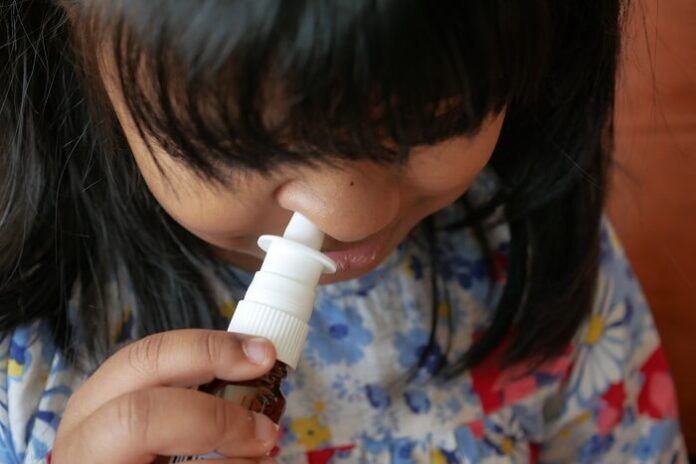A large randomized controlled trial has demonstrated that nasal sprays can significantly reduce the number of illness days among high-risk groups susceptible to respiratory infections, surpassing the effectiveness of behavioral interventions.
Conducted in primary care settings across the U.K., the study found that patients who used either a saline spray (6.4 days, adjusted incidence rate ratio [IRR] 0.81, 99% CI 0.74-0.88) or a gel-based nasal spray (6.5 days, IRR 0.82, 99% CI 0.76-0.90) reported fewer days of respiratory illness compared to those receiving standard care (8.2 days). Additionally, patients using nasal sprays experienced a modest reduction in lost workdays, as highlighted in the open-label Immune Defence study.
Dr. Paul Little and his team from the University of Southampton noted that if widely adopted, these simple and scalable interventions could significantly impact antimicrobial stewardship and reduce the burden of respiratory viruses on patients, healthcare systems, and the economy. Participants at high risk—due to factors such as age, obesity, immune compromise, heart disease, asthma, or diabetes—were advised to use the sprays at the first signs of illness, after exposure to infection, or following close contact with someone sick. “The benefits were more pronounced with increased usage of the sprays,” explained coauthor Dr. Lucy Yardley, emphasizing that adherence to the recommended use of six times a day could enhance effectiveness.
The study also explored a “pragmatic, scalable” behavioral intervention involving a website promoting physical activity and stress management. However, this approach did not result in fewer sick days compared to usual care (7.4 days, IRR 0.97, 99% CI 0.89-1.06). All three interventions tested led to a significant reduction in antibiotic use compared to usual care, with reductions ranging from 26% with the behavioral intervention to 35% with the gel-based spray. This is crucial, as respiratory tract infections are a major driver of unnecessary antibiotic use, contributing to antimicrobial resistance.
Dr. Evangelos Giamarellos-Bourboulis of the National and Kapodistrian University of Athens praised the trial for demonstrating that simple measures like nasal sprays, coupled with proper patient education, can effectively reduce antibiotic consumption and improve patient outcomes. He noted that such interventions highlight the importance of straightforward approaches and proactive treatment.
The Immune Defence trial, which recruited participants from 332 general practices over three winter seasons in the U.K., involved adults with at least one comorbidity or risk factor for severe respiratory infections or those who experienced frequent respiratory illnesses annually. Participants were randomly assigned to receive one of the nasal sprays, a behavioral intervention via a website, or standard care, with over-the-counter nasal sprays prohibited.
The study had 13,799 participants, with demographics evenly distributed across treatment groups. Surveys collected at six months revealed that the average number of sick days was 15.1 for usual care, 12 days for the Vicks First Defence gel-based spray, 11.8 days for saline spray, and 14.2 days for the behavioral intervention group. The most common adverse effects were headaches or sinus pain, with the gel-based nasal spray group experiencing a higher rate (7.8%) compared to the usual care group (4.8%).
As reported by msn.com, despite the promising findings, Dr. Giamarellos-Bourboulis pointed out limitations, such as the lack of strict symptom duration recording and missing information on the specific microbiology of infections. The trial also did not assess gut flora impacts or the potential effects of reduced antibiotic use on multidrug-resistant microorganisms. Participants with certain conditions, such as terminal illness or pregnancy, were excluded from the study.
























